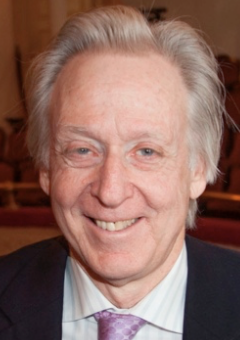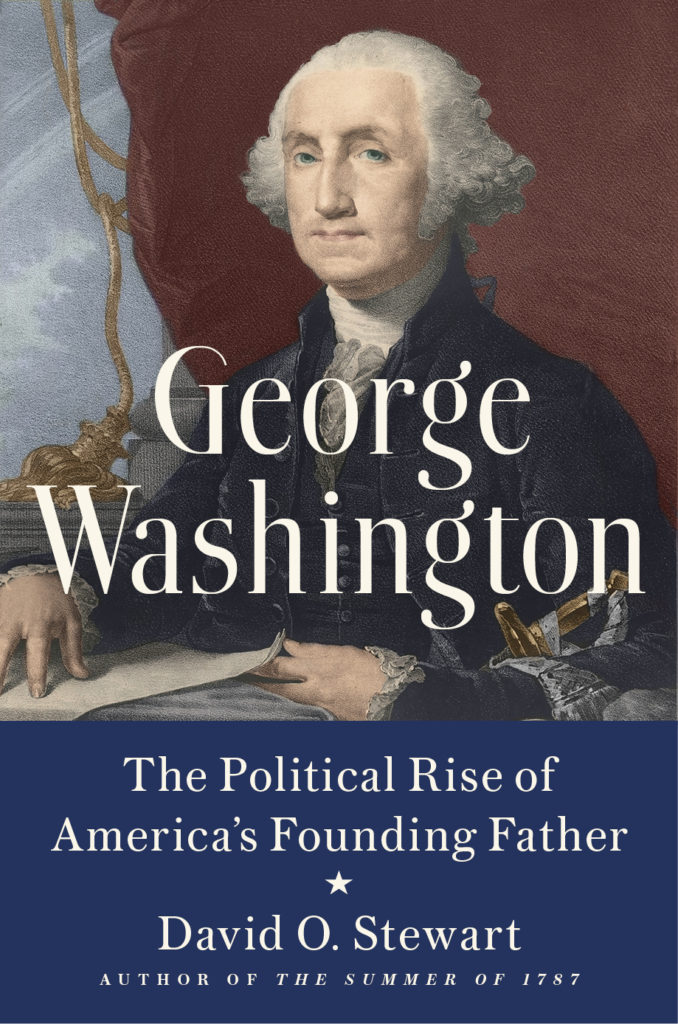
“We usually think of him as this marble man, this cold image on dollar bills and coins, but part of his great success was his emotional intelligence and accessibility.”
— David O. Stewart
This blog posts on Mondays. Fourth Mondays of the month I devote to a Q & A with a fellow writer.

Just in time for the 4th of July, this last Monday-of-the-month Q & A features acclaimed biographer David O. Stewart and his latest work, George Washington: The Political Rise of America’s Founding Father which, by the way, just won the coveted History Prize from the Society of the Cincinnati. I am very much looking forward to reading this biography for, I would suggest, dear writerly reader, that the qualities of George Washington’s leadership in the American Revolution and in the founding of the United States, and his personal evolution, are something vital to both comprehend and contemplate in this covid year when a good portion of our society— on all sides of the political rhombozoid— smombified by screens, self-delivered serfs to the tech lords and their algorithms, tweeting fury to the cyber-winds— seems to be stumbling towards the edge of…
But on to the Q & A.

“[A]n outstanding biography that both avoids hagiography and acknowledges the greatness of Washington’s character… Mr. Stewart’s writing is clear, often superlative, his judgements are nuanced, and the whole has a narrative drive such a life deserves.”
— Wall Street Journal
C.M. MAYO: In brief, what inspired you to write George Washington?
DAVID O. STEWART: I wanted to understand a stunning fact about him: that he won four critical elections (twice as president, and also as commander-in-chief of the Continental Army in 1775 and as president of the Constitutional Convention in 1787), but also that he won them UNANIMOUSLY. Who does that? How did he do that? The book is an attempt to answer those questions.
C.M. MAYO: As you were writing, did you have in mind an ideal reader?
DAVID O. STEWART: I always try to write for curious readers, not for specialists or history enthusiasts. Some of the best stories are true—it would be hard to invent a fictional Washington, someone that complex, brave and impressive, yet also with significant flaws that he struggled to repair yet (because he was human) never entirely fixed. So my best reader is someone who wonders about this world and how we struggle to make our way.
C.M. MAYO: In your researches, what are the one or two things that most surprised you to uncover?
DAVID O. STEWART: With George Washington, I wasn’t prepared for how frankly emotional he was. Much of his leadership was based on his ability to connect with others on an almost pre-cognitive level. Sure, he was large and usually calm and centered, but he also had the gift of listening to others (John Adams called it his “gift of silence”). Contemporaries called him “affable.” At highly-charged moments in his life, Washington wept in public. When he lost loved ones, he wrote movingly about the pain. We usually think of him as this marble man, this cold image on dollar bills and coins, but part of his great success was his emotional intelligence and accessibility.
C.M. MAYO: Which writers have been the most important influences for you as a writer of narrative nonfiction (biography)? And for George Washington in particular?
DAVID O. STEWART: I read for entertainment and enlightenment, and am not usually looking for instruction. I can be knocked out by someone else’s book— any of Robert Caro’s, for example— without ever thinking that I should write that way. I may pick up a tip here or there (Joseph Ellis’ American Sphinx teaches that you can write a fine biography that overtly skips the dull stuff). But other writers have their own magic. It’s not mine. I try to figure out the best way to tell well the story I’m working on. As for Washington, many writers have taken him on with great success —Freeman, Flexner, Chernow, even Washington Irving— but I think I learned the most about Washington from some less-well-known writers like Don Higginbotham, Paul Longmore, Peter Henriques.
C.M. MAYO: Which writers are you reading now?
DAVID O. STEWART: I’m halfway through Ted Widmer’s Lincoln on the Verge, which is a remarkable snapshot of America careening into the Civil War; it’s digression as an art form. Since I also write fiction, I usually have a novel or two going. I’ve recently discovered Tana French’s Irish police stories, which are wonderfully written, and very much admired Maggie O’Farrell’s Hamnet. I’m resolved to read a couple of Barry Unsworth’s historical novels; I read two of them a while back and enjoyed them immensely.
C.M. MAYO: How has the Digital Revolution affected your writing? Specifically, has it become more challenging to stay focused with the siren calls of email, texting, blogs, online newspapers and magazines, social media, and such? If so, do you have some tips and tricks you might be able to share?
DAVID O. STEWART: For a lot of years, I was a trial and appellate lawyer with a dozen or more active cases at a time. I used to describe my work as a life of interruptions. Clients called. Colleagues dropped by (remember offices?). Opposing lawyers called. Dumb firm meetings. Interviewing job applicants. I was constantly dropping one subject to pick up another. I tried to be in my office by seven a.m. to get some uninterrupted time. So these days, working at home by myself, I actually get antsy if I don’t have a few interruptions. I’m used to working for a stretch, taking a few minutes off to do something stupid (see social media) or annoying (see call health insurer), and then getting back to work. It’s normal.
C.M. MAYO: For writers of narrative nonfiction keeping notes and papers organized can be more than tremendously challenging. Would you have any tips to share / lessons learned?
DAVID O. STEWART: I have a very boring organizational system because I want to spend the least amount of time maintaining the infrastructure. With each new project, I usually start a timeline but then give it up after a few weeks as more trouble than it’s worth. I like maps. I keep a list of sources I want to consult and sometimes remember to cross off the ones I’ve read. I take notes on EVERYTHING, even if I have the source in hard-copy. And I type all my notes in Word so it’s all word-searchable. That’s it. No index cards. No file cabinets overflowing with stuff. No cellphone photos of key passages. No Scrib’d files. No diagrams on cork boards.
C.M. MAYO: For those looking to publish, what would be your most hard-earned piece of advice?
DAVID O. STEWART: Nobody asked you to write that book. You’re doing it for you. If you can’t get it published, accept that they’re all a bunch of morons and move on.
C.M. MAYO: What’s next for you as a writer?
DAVID O. STEWART: I’ve been working on a trilogy of novels inspired by my mother’s family’s history, starting when the first ones came to the Maine coast in the 1750s. It’s called The Overstreet Saga, and the first one (The New Land) should come out in November.
Excerpt from David O. Stewart’s George Washington (Dutton Books, 2021)
There was a real man named George Washington, one who stuffed his sixty-seven years with remarkable achievements. This book examines a principal feature of his greatness that can be overlooked: a mastery of politics that allowed him to dominate the most crucial period of American history. For the twenty years from 1776 to 1796, he was a central force in every important event in the nation; often, he was the determining factor. A former British soldier, far from an admirer, wrote in 1784 that Washington’s “political maneuvers, and his cautious plausible management,” had raised him “to a degree of eminence in his own country unrivalled.”One measure of Washington’s political skill was that when he denied having political talent or ambitions, people mostly believed him, and have continued to believe him ever since.
That those denials were disingenuous is beyond dispute. Washington won several major elections in his life: in 1775, the Second Continental Congress selected him as commander-in-chief of the Continental Army; his colleagues at the Constitutional Convention in 1787 made him presiding officer of that pivotal effort to invent a system of self-government; then the new nation elected him as its first president, and re-elected him. As pointed out by others, the fact to linger over is that Washington did not merely win those four critical contests; he won them unanimously. Unanimous election was no more common in the late eighteenth century than it is today.
Washington did not achieve such preeminence due to natural advantages or happy accidents, or because he was tall, rich, brave, and married a rich woman. Nothing about Washington’s success was easy. He had modest inherited wealth, so had to acquire the money that made his career possible. He had a meager education, a temper that terrified those who saw him lose it, a cockiness that could make him reckless, and a deep financial insecurity that could lead him close to greed.
Washington studied his flaws. From a young age, he struggled against his own nature. His early missteps might have crippled the prospects of a person with less dogged commitment to self-improvement. He ruthlessly suppressed qualities that could hinder his advancement and mastered those that could assist it. Washington’s story is not one of effortless superiority, but one of excellence achieved with great effort.
That Washington was the paramount political figure of the turbulent founding era may be enough to deem him a master politician. Yet the appellation applies even more firmly because of the restraint and even benevolence with which he exercised the power his contemporaries placed in his hands. Acclaimed at countless public ceremonies through the last quarter-century of his life, he never became grandiose or self-important. Often called “affable” by those who knew him, despite a personal reserve he maintained in public, his intense modesty and sense of his own fallibility allowed him to seek the advice of others on difficult decisions without preventing him from following his own judgment. As the embodiment of the republican ideals of his time and place, he defined the expectations that Americans would have of their leaders for many generations.
Read more about David O. Stewart and George Washington at davidostewart.com
I welcome your courteous comments which, should you feel so moved, you can email to me here.

Q & A with Timothy Heyman on the Incomparable Legacy of
German-Mexican Novelist B. Traven
Duende and the Importance of Questioning ELB
Selected Cabeza de Vaca Books, Part II:
Notes on Narrative Histories and Biographies

